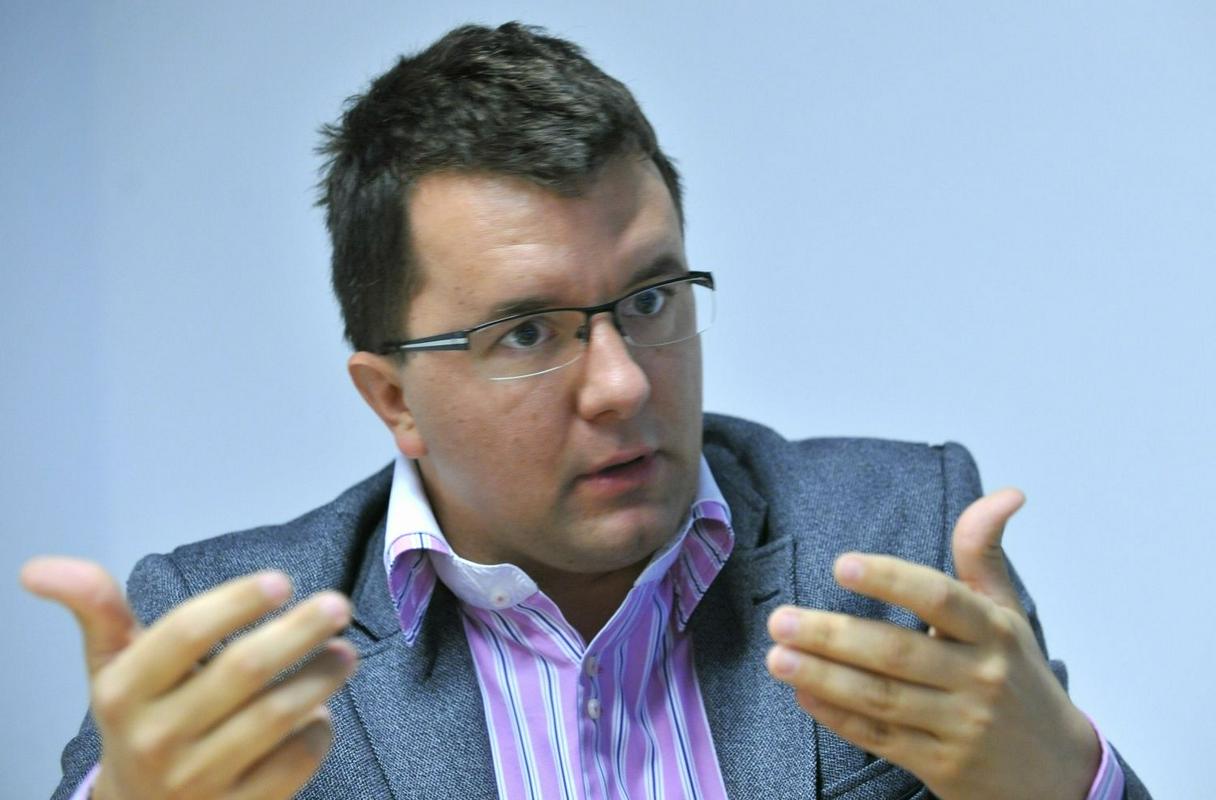
Žiga, what is www? It was the question posed to the eloquent and dynamic pioneer of the new economy by his grandmother. This question triggered the Simbioza project - the trademark of the Ypsilon organisation Vavpotič is now leaving behind. He intends to dedicate himself to the task of creating a think centre above politics, where economists, teachers, ambassadors and intellectuals from all sides could come together. This centre would bring fresh air to Slovenia, and not only hasten our way out of the crisis, but also bring about a breakthrough in development.
The Ypsilon organisation you cofounded has recently received the European SozialMarie award, presented by the Unruhe Privatstiftung Foundation for innovations on the social field. You received the award for your project Obljuba Sloveniji (Promise to Slovenia). What is it about?
We all expect the country to do something for us, while with this project we wanted to turn the tide, and asked ourselves: What can we do for the country?
Kennedy's message?
(smile) In Slovenia we tend to rely too much on the state, and wait too long. We decided to try to change that. The main message is: what can we do for the country or for the society. In collaboration with Ajša Vodnik a project was developed and used as an example. The promises are slowly arriving.
61 of the promises have already been fulfilled. Let's mention the promise of the Bisnode company to continue mentorship programme for at least 10 people outside their company.
Correct. All kind of different promises have been given, mostly by economist, and it is our great hope that politicians will join them. The idea is based on spreading the promises – and to turn people into men of honour who give promises publicly, and also fulfil them.
A number of economists gave promises connected to social responsibility. What can we make out from that?
The economy is changing, is deliberating. As said by the new president of the Manager Society Aleksander Zalaznik, the first and the most important trait of companies is to make profit. But at what cost? The basic question is what to do with the profit. The economy is becoming aware that making profit for the owner should not be the only purpose; the profit should be invested into company development as well. The social responsibility I am studying also academicalla, and not only as a social entrepreneur, is probably a new direction promising a better future, once the economy grasps it.
The Purpose Economy 100 platform recognized you as one of the 100 pioneers of the new economy in Europe. What is the new economy?
We were surprised by this acknowledgement. It is an organisation which is recognizing new economists, or people with a fresh view on the USA economy. This year they made their selection of pioneers for the first time also in Europe. They chose the Simbiosa case as an example of good practice. And that is exactly what the new economy should be: it should create added value not only for an individual, but for the wider society. That's my understanding of the new economy: the transition from the »ego« capitalism, e.g. from the question: what am I making for myself, and myself only, we should shift towards the new economy and ask ourselves: what added value am I making for the society.
Is this added value only in favour of the employer, or also in favour of those creating it?
Absolutely. The importance of an individual is gradually diminishing. On the other hand an individual with his/her talent plays an important role as the exclusive factor in making this change. The question is much wider: what influence do I have as an individual? I influence not only my neighbour, in the global world my influence can be felt not only in my town, my state, but all over the world. How and what should I do? I can have a negative influence as well, e.g. by polluting the environment. But we can try to be positive, make a change – it can be also a change in thinking, in benefit of the wider society.
A great shift was made by your Simbioza project, which became the most recognizable project of the Ypsilon organisation. Where has the idea to connect the elderly with the young come from?
My grandmother gave birth to the idea by posing a very simple question: Žiga, what is www? It made me aware of our discriminational attitude even towards those we love best. It was a shocking realization. At first the form of Simbioza was defined during an intergenerational discussion at the Karst, and later Vojka Žgavec Clemenz gave it the name. We have created a movement – the young proved that they do care about the elderly, while the elderly realized that the world is still based on the young people. I believe it is a very sensible combination: to create intergenerational solidarity and cooperation. I dare say that is the correct course for the future!

































































